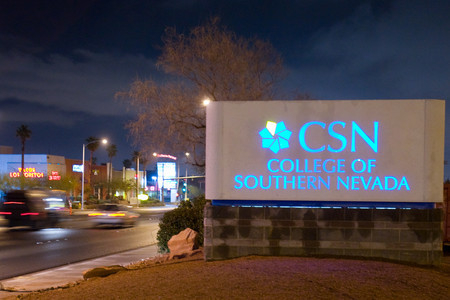Honors program returns to College of Southern Nevada

After a five-year hiatus because of lost leadership, the College of Southern Nevada’s honors program is being resurrected by professor Patrick Quinn and others from the English department.
Starting in fall 2014, the school will offer advanced classes. Most are English courses, including Shakespeare and two world literature courses — antiquity to the Renaissance and Enlightenment to the modern era.
Microbiology and introductions to communication, psychology and philosophy also will be offered.
“We have a lot of really highly motivated high school students who for many reasons end up coming to community college first before going on to other schools,” Quinn said. “Since we have a lot of high-achieving students, we need something for them.”
To qualify, students entering CSN from high school must have a 3.5 grade point average and two letters of recommendation from teachers or counselors and must complete a short essay.
Existing CSN students need two letters, an essay and a GPA of 3.25.
The application is available online at www.csn.edu/honors.
The program will accommodate up to 120 students this fall, and class sizes will be capped at 18, compared with 25 for regular courses.
In addition to smaller classes, the honors college touts university readiness, increased rigor, interdisciplinary study, innovative instruction and active, student-centered learning. “Outside the classroom” is also a CSN honors principle.
“We want instructors to move outside the four walls,” Quinn said. “It’s up to the instructor how they do that.”
In Quinn’s classes, students moved beyond the classroom by publishing their work and writing for a larger audience.
School officials are deciding how the honors program will be reflected on diplomas, but transcripts will show an “H” next to the course to indicate added rigor.
About 14 professors signed up to teach honors and completed training to learn about exceptional students and how to engage them.
Honors courses challenge not only the students but the professors, who don’t receive financial incentives to participate.
“It’s definitely more rewarding,” said microbiology professor Deborah Harbour, who has taught CSN honors courses in the past. “There’s an incentive in science because we need science students. We have a desperate need to get top-notch science students in this country again.”
The program is working to develop more science, technology, engineering and math courses. A botany course could be developed.
Contact reporter Kristy Totten at ktotten@reviewjournal.com or 702-477-3809. Find her on Twitter: @kristy_tea.